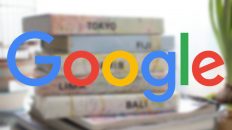 Can Google search be treated as an intermediary just like the phone company that simply connects people with bits of information they seek? Or is it a publisher akin to a newspaper, providing only the information it deems fit and is fully protected by the First Amendment? Apparently, there are enough reasons for the search major to want to be viewed as a mere connector; like any other Internet company, it can do away with responsibility for the material being transmitted by its worldwide users – a useful idea for rebutting copyright infringement or libel claims.
Can Google search be treated as an intermediary just like the phone company that simply connects people with bits of information they seek? Or is it a publisher akin to a newspaper, providing only the information it deems fit and is fully protected by the First Amendment? Apparently, there are enough reasons for the search major to want to be viewed as a mere connector; like any other Internet company, it can do away with responsibility for the material being transmitted by its worldwide users – a useful idea for rebutting copyright infringement or libel claims.
Why does Google consider itself a publisher?
When the issue is regarding anti-competitive behavior – a charge made by close rivals and certain businesses – the company has recently been emphasizing that it considers itself a publisher, and it’s seeking different kinds of protections, under the garb of free speech. How it has decided to claim so is really interesting, hiring a noteworthy conservative blogger Eugene Volokh. The Los Angeles-based University of California professor has written a paper in which he argues the fact that Google search results are actually protected speech.
He freely acknowledges that the research paper on his blog, widely shared on the Internet, is a piece of advocacy. It’s something that would be handy in case Google were facing a legal trial on such issues. There is no court case at the moment that he is pointing towards with his work, but the company has become a target for some competitors over its way of running the search engine.
Objections against Google’s search and its defence
Google’s search algorithms seem to favor services owned by it, a charge that Google denies. The practice has already drawn the European and the US regulators’ attention. Eric E. Schmidt, Google’s chairman, was called late last year before a Senate antitrust panel for defending their practices. The subcommittee bluntly put the question: “Is it possible for the company to be both an unbiased search engine, owning a vast Web-based products and services portfolio at the same time?” His response was measured, noting that if Google stopped offering helpful results users would switch to other engines, adding that profit motives would not impact their search results.
Volokh’s message is that Google is essentially a publisher and can well favor its own material or might even block another’s. In one chapter, he argues:
“Some have allegedly come to expect that the company will choose search results based solely on supposedly ‘neutral’ computer algorithms, with no preference for its thematic search results. But the critics cannot point to any such guarantees to customers because Google makes no guarantees”.
Google revealed that it had decided to commission the paper as a way of lending support to two lower court rulings (from as early as 2003 and 2007) that gave its searches First Amendment protections. According to a Google spokesman on policy issues, Given the fact that federal courts chose to reject on First Amendment grounds many lawsuits by sites over search rankings, the company felt these issues were worth exploring by a credible First Amendment scholar.




